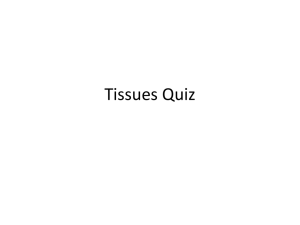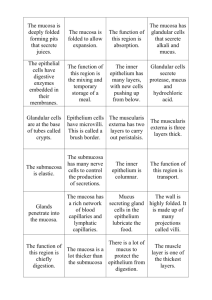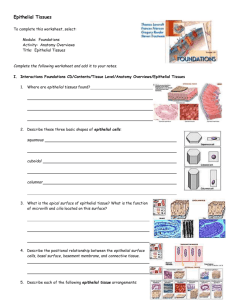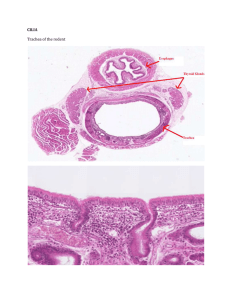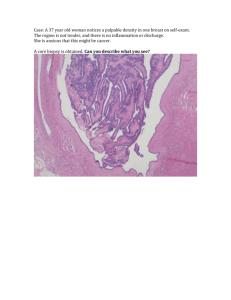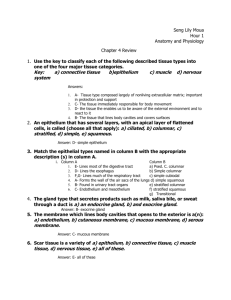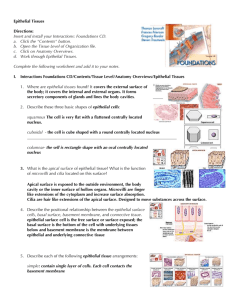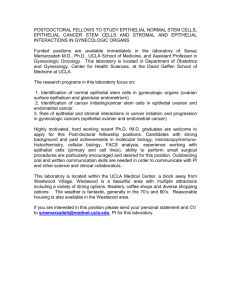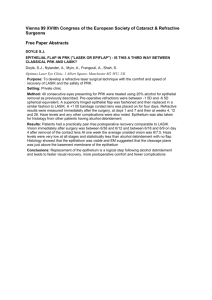Focal Epithelial Hyperplasia (Heck`s Disease)
advertisement
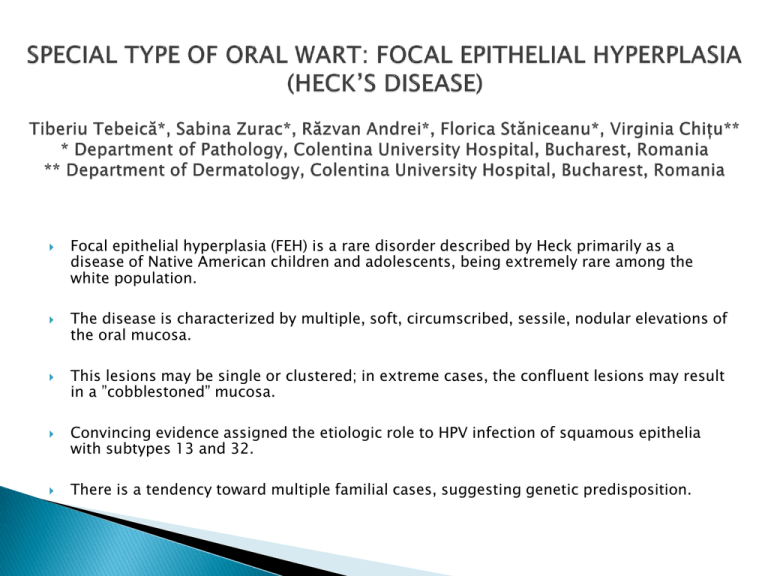
Focal epithelial hyperplasia (FEH) is a rare disorder described by Heck primarily as a disease of Native American children and adolescents, being extremely rare among the white population. The disease is characterized by multiple, soft, circumscribed, sessile, nodular elevations of the oral mucosa. This lesions may be single or clustered; in extreme cases, the confluent lesions may result in a ”cobblestoned” mucosa. Convincing evidence assigned the etiologic role to HPV infection of squamous epithelia with subtypes 13 and 32. There is a tendency toward multiple familial cases, suggesting genetic predisposition. Clinical features 9-year young girl with multiple asymptomatic lesions of oral mucosa 5-10 mm in diameter soft rounded or nodular appearance similar in color to the surrounding mucosa, with no inflammatory appearance lasting for 7 months Clinical differential diagnosis multiple squamous papillomas condylomata acuminata neurofibromatosis acanthosis nigricans multiple hamartoma of Cowden’s syndrome => shave-biopsy and histological examination of one lesion • minimal parakeratosis • acanthotic epithelium with prominent clubbing and fusion of epithelial ridges • minimal connective tissue papillae without well-defined projetions of epithelium • special ballooning type of nuclear degeneration in some epithelial cells dispersed in all epithelium levels • typical koilocytic change • no epithelial dysplasia • coarse clumped heterochromatin with pseudomitotic appearance = ”mitosoid bodies” Mitosoid body = the characteristic feature which enable the diagnosis of Focal Epithelial Hyperplasia with certainity. FEH is a benign asymptomatic condition, requiring only reassurance. Ancillary studies for HPV detection are unnecessary in an appropriate clinical context. A careful histopathological examination is essential in order to rule out sexually transmitted viral diseases with medico-legal implications, especially in areas with very low prevalence of Heck’s disease.

